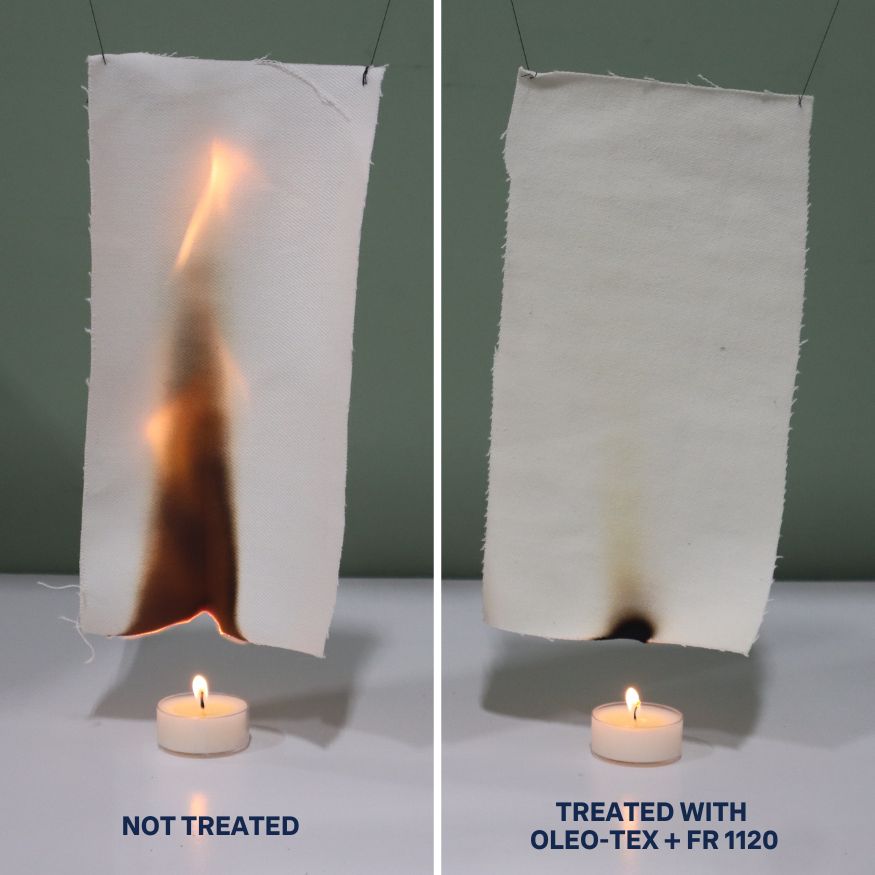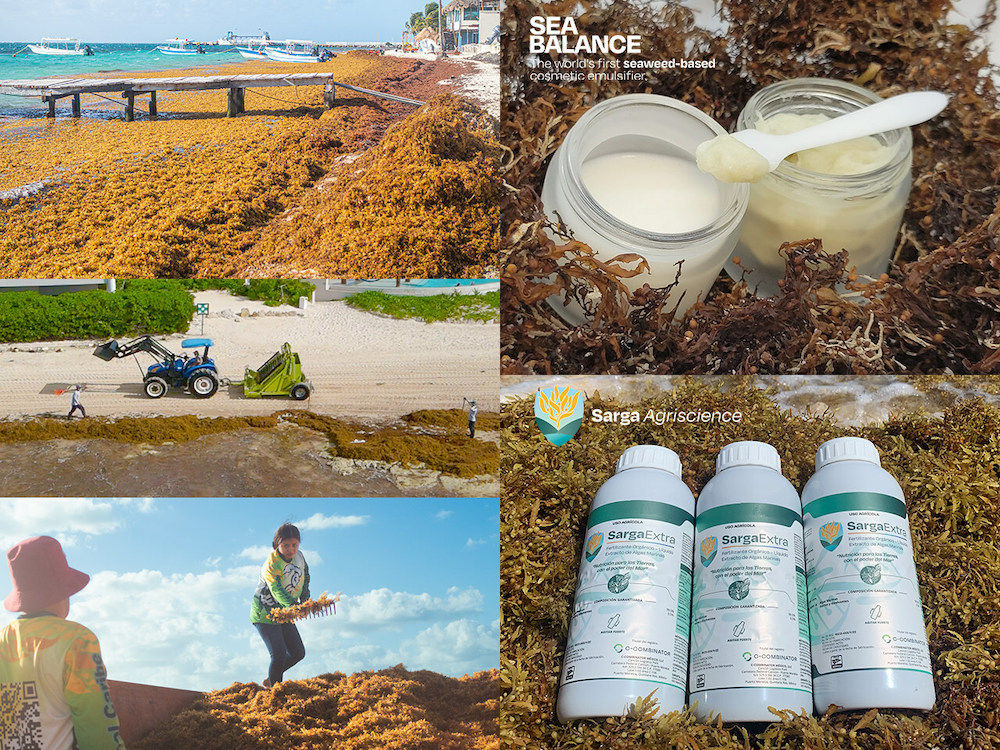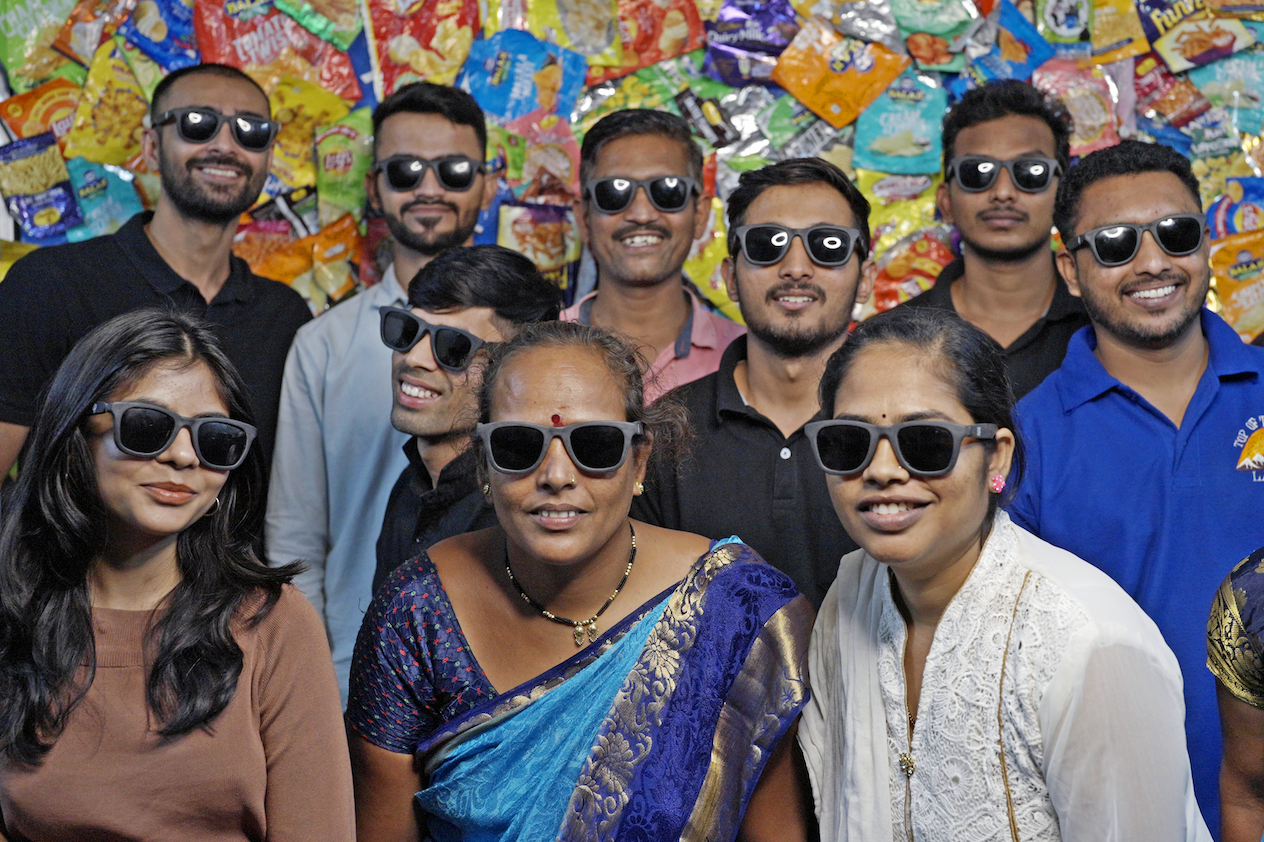
From planetary warming to plastic waste, it's easy to get bogged down in all the bad news out there. But let's not forget that innovators around the world are on the case, doing largely unsung work on a daily basis to scale solutions with the potential to address these challenges head on. To bring a little cheer to your week, today we're rounding up some of the most eye-catching sustainability solutions to cross our desks this spring.
A system that turns blue-green algae into a carbon sink
Blue-green algae blooms are bad news, but they're becoming more frequent with climate change. "Blue-green algae is the common name for cyanobacteria, a type of water-dwelling bacteria that has plant-like photosynthetic abilities," TriplePundit's Tina Casey reported last month. "An over-abundance or 'bloom' of cyanobacteria can wreck ecosystems and harm other living things."
But as we remember from grade school: If they use photosynthesis, that means they consume carbon dioxide, so it's no surprise that companies the world over are looking into the bacteria as a sustainability solution. One of those companies is Tel Aviv-based BlueGreen Water Technologies — which sells nontoxic algaecides that target cyanobacteria internationally.
"Its patented, EPA-approved formula triggers a natural 'suicide' response in cyanobacteria, clearing the way for beneficial algae and other aquatic species to take over," Casey reported. "The treatment effectively converts a body of water into a carbon sink, with the dead cyanobacteria locked into sediment for potentially millions of years, according to BlueGreen. This carbon-sequestering feature could help offset the cost of remediating blue-green algae blooms, if stakeholders could claim carbon credits for the operation." Read the full story to learn more.
AI and crowdsourced science combine to preserve coral reefs
"Through a novel citizen-science project, time mindlessly wasted online can be put to use helping scientists understand, and even restore, the world's coral reefs," Ruscena Wiederholt of TriplePundit reported in April.
The Calling in our Corals project combines the computing might of artificial intelligence with the ears of millions across the internet. Launched by Google with the help of marine biologists Steve Simpson and Mary Shodipo, the project invites any internet user to listen to 30-second audio clips of coral reefs from around the world. Healthy reefs are rife with vibrant sounds (who knew?), while those under threat are muted, so soundscape data can tell scientists quite a bit about the state of the world's reefs. Users identify "the sounds made by fish, shrimp and other underwater animals," and the data is used to train an AI model tasked with making predictions about reef sustainability, Wiederholt reported.
"Impressively, this tool may also help to restore reefs," she wrote. "Some animals, like fish larvae, corals and other invertebrates, spend their larval stage in the open ocean. The sounds of a healthy reef act like a beacon, encouraging juvenile animals to settle there. Consequently, playing the music of healthy reefs on underwater speakers may accelerate their regrowth and restoration." Read the full story to learn more.
A blockchain-powered system that tracks sustainability from field to fork
Merge Impact is looking toward blockchain — the digital ledger technology that enables cryptocurrencies like Bitcoin — to track agricultural ingredients through the supply chain. The Illinois-based startup bills its sustainability technology as the first of its kind to connect farmers, food manufacturers, and brands with data about the environmental impact of their decisions at every step from field to fork.
"Major food manufacturing companies have made public commitments to regenerative sourcing worth trillions of dollars. But many of these commitments have been based upon dubious data, resulting in shaky and unsubstantiated sustainability action plans," L. Blaine Fulmer of TriplePundit reported last month. "Merge Impact’s use of third-party data collection and blockchain technology allows food companies to understand the impact of their supply chains and make reliable claims about their products. In turn, customers can rely upon these claims to make better choices about the products they support." Read the full story to learn more.

A water-based alternative to PFAS
The group of chemicals known as PFAS are ubiquitous in modern life. These perfluoroalkyl and polyfluoroalkyl substances are used in everything from food packaging and personal care products to non-stick cookware, touchscreens and textiles. Often called "forever chemicals" because they do not naturally degrade, PFAS have been found in soil and water nearly everywhere in the world, not to mention in human blood.
Young entrepreneur David Zamarin started working to develop PFAS alternatives at only 15 years old. His team at the Massachusetts-based sustainability startup Impermea Materials thinks they've found a novel replacement for the class of chemicals that can naturally degrade and is not toxic to human or environmental health.
"Instead of just switching out one type of PFAS for another, Impermea Materials has developed its own molecule — dubbed siloalkoxyurylsilane," Riya Anne Polcastro of TriplePundit reported last month. "Its water-based solutions can be used in place of PFAS in a variety of products — including packaging, apparel, upholstery, and technical textiles such as those worn by firefighters and military." Read the full story to learn more.

A biomaterial process that converts seaweed from beaches into usable products
Sargassum seaweed blooms have been bumming out beach-goers around the world over recent years. The masses of dead seaweed wash up on shorelines and threaten marine ecosystems, and they're only getting worse as ocean temperatures warm.
Boston-based bio-material processor Carbonwave is looking to collect 40,000 tons of sargassum seaweed from beach spots like Quintana Roo, Mexico, this year. "But it's not just about getting the rotting vegetation off of beaches. Once collected, the company is converting the brown algae into bio-stimulants and cosmetic emulsifiers while working to develop more fossil-fuel alternative products," 3p's Riya Anne Polcastro reported. Read the full story to learn more.

A social enterprise finding new uses for the world's most waste plastic
Indian social entrepreneur Anish Malpani is doing some pretty sweet stuff with recycled plastic — and he just so happens to be the little brother of one our writers, Abha Malpani Naismith. Ashaya, the social enterprise Anish runs in Pune, has developed a system to convert hard-to-recycle flexible plastic into durable material for new products. Virtually none of the flexible plastic used in snack bags, food wraps and electronics packaging is recycled worldwide. Ashaya pays a premium to self-employed refuse collectors for this junk plastic and uses 10 percent of its profits to send the collectors' children to school.
Ashaya's team "chemo-mechanically extracts materials from this waste using a patent-pending technology and use those materials to create sunglasses, the company's first proof-of-concept product," Malpani Naismith reported. "Each pair of sunglasses is made of five chip packets." Read the full story to learn more.
An app that makes flood predictions visual to drive the point home
FloodVue is the Pokémon Go of flood data. The app leverages augmented reality, which blends a user's own viewpoint with a digital image. In the case of FloodVue, developed by the global consultancy WSP, users can see a four-dimensional rendering of predicted flood conditions at their location. But the data on FloodVue doesn't just look cool — it can strike a chord with policymakers and city planners as they consider how much to invest in resilient infrastructure.
“To dictate back to the community where it's going to flood, how much rainfall is needed to flood, how to protect their assets — that's where we want the software to go and how it can help communities, public agencies, and governments overall,” Tyer Jones, water national business executive for WSP’s U.S. branch, told Michelle Erdenesanaa of TriplePundit. Read the full story to learn more.
Image credit: Jill Wellington/Pixabay

Mary has reported on sustainability and social impact for over a decade and now serves as executive editor of TriplePundit. She is also the general manager of TriplePundit's Brand Studio, which has worked with dozens of organizations on sustainability storytelling, and VP of content for TriplePundit's parent company 3BL.














